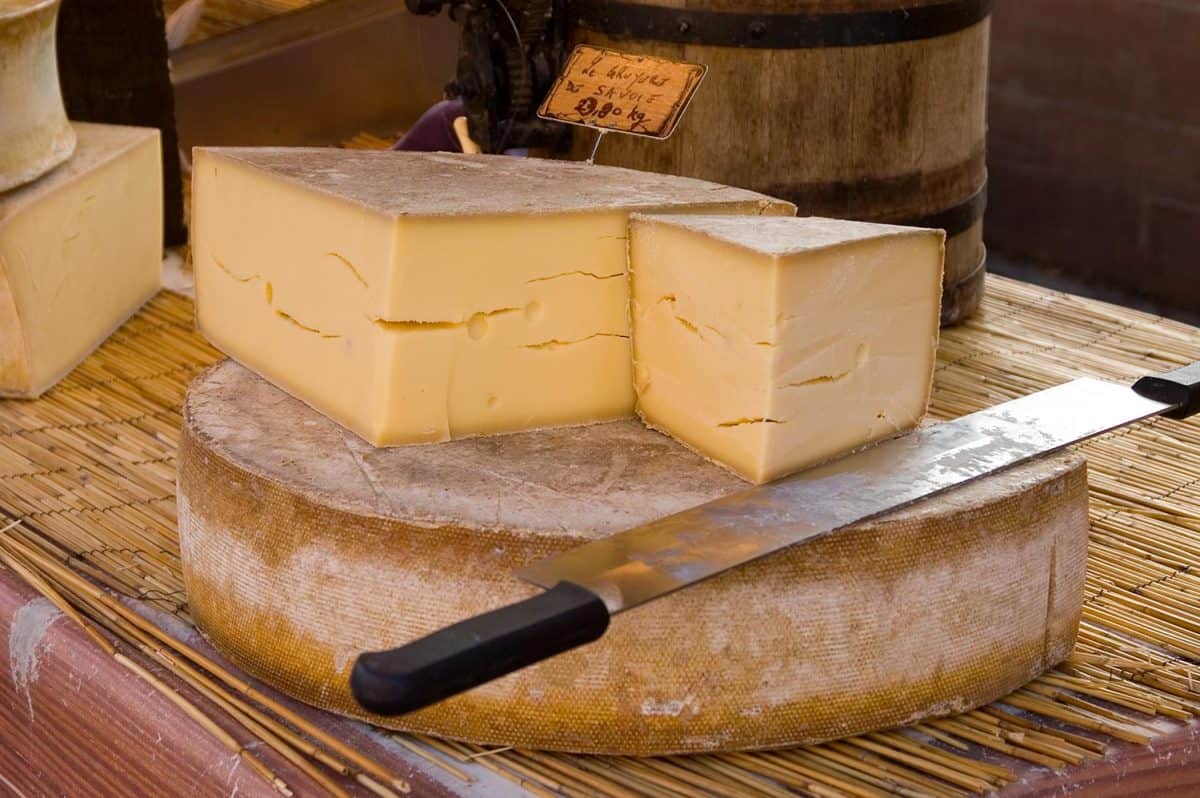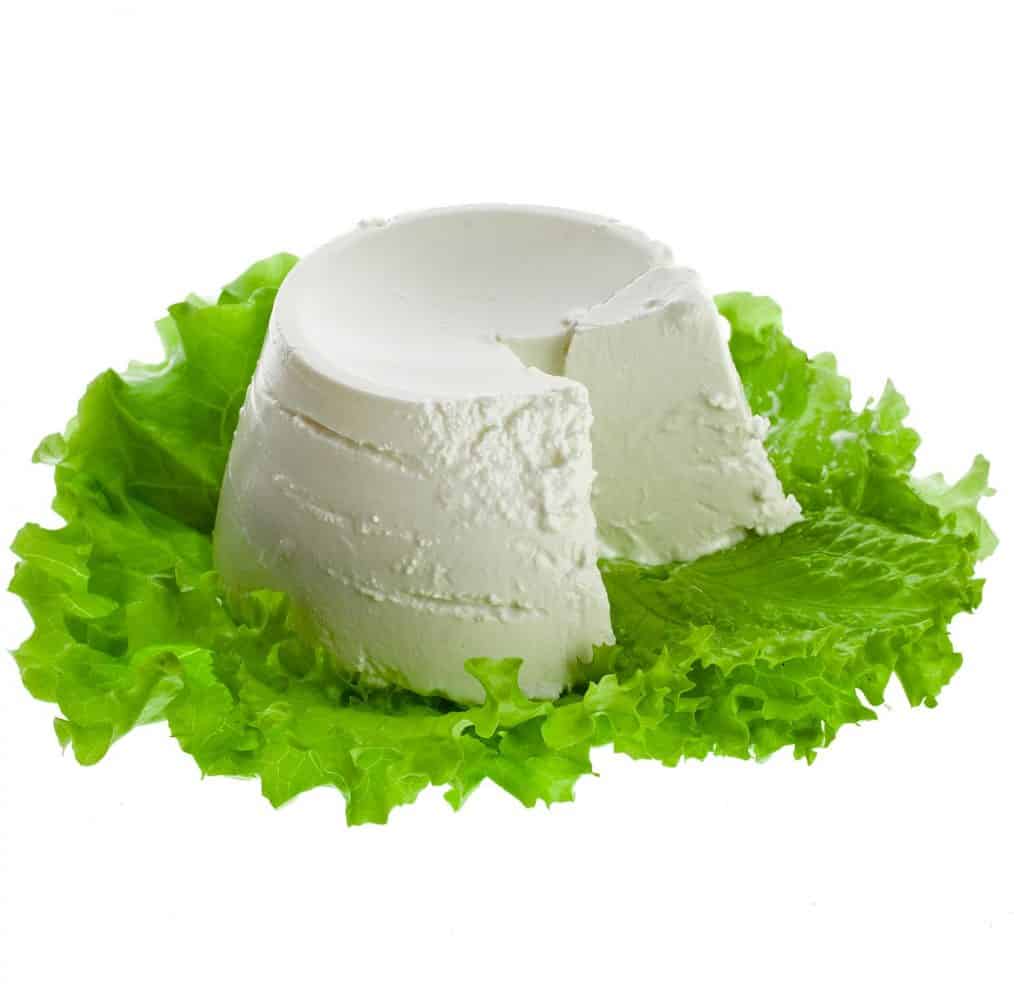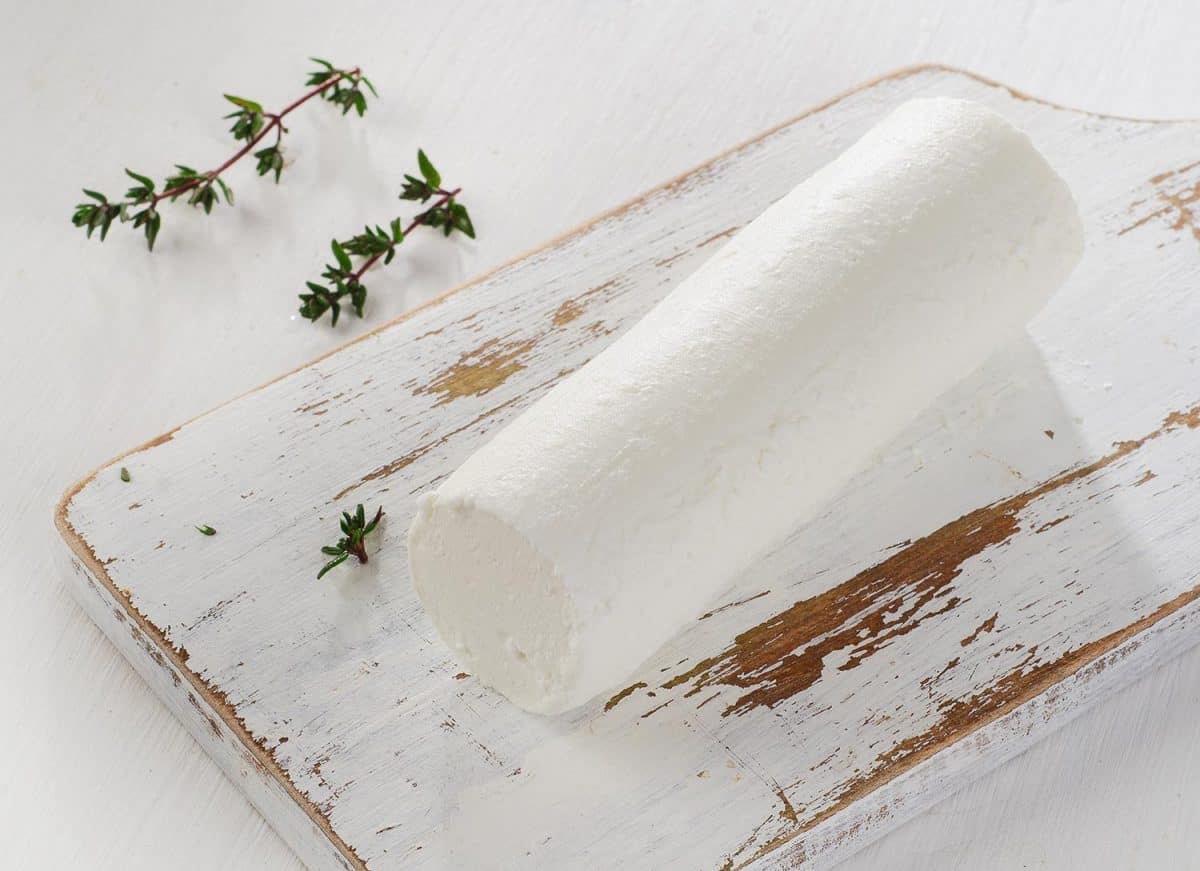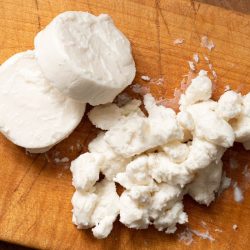They say that cheese, like wine and chocolate, gets better with age. However, if you've ever seen a package of cheese with an expiration date on it, you might be wondering if all cheese really does get better with age. We've done the research to answer this question for you.
Not all cheese can or should be aged. Fresh cheese is the term given to cheese that should be eaten without being aged.
Cheeses that age well:
- Cheddar
- Gruyere
- Gouda
- Camembert
- Parmesan
Cheeses that do not age well:
- Cream cheese
- Feta
- Mozzarella
- Cottage cheese
- Ricotta cheese
As you will learn, some of the cheeses listed as not aging well actually do get aged for a short period of time. What separates them from the ones that age well is their quality after the recommended length of aging time. Let's take a look at the cheeses that do age well and those that do not.
![Aging of old cheese in the factory, Does Cheese Always Age Well Or Does It Go Bad Eventually? [According To Type Of Cheese]](https://kitchenseer.com/wp-content/uploads/2021/09/Does-Cheese-Always-Age-Well-Or-Does-It-Go-Bad-Eventually.-667x1000.png)
Contents
Five Kinds of Cheese That Age Well
First, let's take a look at the cheeses that age well. These cheeses become tastier and more high quality with age. It is not uncommon for cheeses in this category to be aged for months and even years.
Cheddar

When you go to the grocery store and choose between mild, sharp, and extra sharp cheddar cheese, you are likely choosing the one with the flavor you prefer. However, the sharpness of cheddar cheese is determined by how aged the cheese is. The longer the cheese ages, the sharper the taste will be.
Gruyere

This type of swiss cheese may not be well-known in the US, but it is very popular in Switzerland. It is typically aged for 5-12 months. Like cheddar cheese, the flavor profile changes as the cheese ages. Young gruyere cheese has a nuttiness to it, while aged gruyere is more earthy.
Gouda

Gouda is typically aged for a year but can be aged as long as five years! As gouda ages, it becomes denser and has a more complex flavor profile. Like the other cheeses in this category, gouda can be eaten young, but the flavor profile isn't as pronounced.
Camembert

Camembert is an interesting cheese because it defies what we've learned so far about aged cheese and cheese safety. While the other aged cheesed get harder or more dense as they age, camembert becomes creamy when it ripens. However, while most cheese can age for as long as years, camembert typically only ages for a few weeks.
Parmesan

Parmesan is arguably one of the most well-known and easily accessible cheeses. It is also the cheese that lasts the longest and goes through the longest aging process. If you recall, the other aged cheeses we discussed can be aged up to a year or more. However, parmesan must be aged for at least a year to reach its best quality.
Five Kinds of Cheese That Do Not Age Well
Fresh cheese is the term given the cheese that has either a very short aging process or no aging process at all. Some fresh cheese ages for a short amount of time, but the quality will decrease if it is aged for too long. Let's take a look at some of the most common fresh cheeses.
Cream Cheese

Cream cheese, the popular cheese for breakfast bread such as bagels, does not go through an aging process. Instead of creating a delicious flavor profile when aged, cream cheese becomes sour. Cream cheese can last about 2 to 3 weeks past the expiration date, but any attempts to age this cheese will lead to disaster.
Feta

Feta cheese can be aged, but instead of aging in dry conditions like other aged cheeses, it is aged in a brine solution. The brine allows the feta to reach maturity without spoiling. Opened packages of feta can only last about a week before going bad, and one should never attempt to age feta cheese without a brine solution.
Mozzarella

Mozzarella cheese is another cheese that goes through a short aging process. Two to four weeks is enough time to give mozzarella cheese its best flavor. Aging mozzarella too long will make it too soft, so it will be challenging to work with. It will also take on an unpleasant pasty texture.
Cottage Cheese

Cottage cheese is a true fresh cheese, which means it does not go through an aging process at all. It is made from the curds of dairy milk and only takes a few hours to prepare commercially. The cottage cheese you purchase in the grocery store only lasts about five days past the expiration date.
Ricotta Cheese

The ricotta cheese that you find in the grocery store is a fresh version that is not aged. It goes bad quite easily and only lasts about a week or two after opening. However, the lesser-known aged ricotta is aged for about two months. Unlike its fresh counterpart, aged ricotta is hard and is usually grated to be used in pasta.
A Note on Goat Cheese

Goat cheese needs a category of its own because many different varieties are made from goats' milk, much like we have available from cows' milk. Fresh goat cheese has a mild flavor and a smooth, creamy texture. Aged goat cheese is tart and earthy and its texture can be firm or more hard, like a parmesan.
Raw Vs. Pasteurized Milk
There is a law in the United States that mandates that pasteurized milk is used for any cheese aged less than 60 days. This means that raw milk can only be used in cheeses that are aged 60 days or longer.
Because of this, any fresh cheese that you purchase will be made from pasteurized milk. While this is particularly relevant when discussing goat cheese, the rule also applies to cheese made from cow milk.
What Will Happen If You Eat Expired Cheese?
Depending on the type of expired cheese you eat, it's possible that you won't experience any illness at all. If you experience illness, it can be as mild as an upset stomach or as severe as food poisoning. The symptoms you experience will depend on how safe the cheese is after it has passed the expiration date.
How Long Does Cheese Last After The Expiration Date?
Cheese is more durable than you would think and can often still be edible two to three weeks after expiration. Believe it or not, you can even cut the mold off of some cheeses and consume it. Keep in mind that the safety of cheese that is past the expiration date varies by type. Hard cheeses that contain little to no moisture are safer for longer than soft cheeses that contain more moisture.
How Do You Know When Cheese Goes Bad?
Aside from the expiration date, cheese lets you know that it is bad through taste, smell, and appearance.
Appearance
When looking at the cheese, you may notice a slimy texture or mold. On hard cheeses, mold doesn't necessarily mean that the cheese is inedible. If it hasn't spread too widely throughout the cheese, you can cut it off and eat what is remaining.
With soft cheese, however, you cannot take this risk. Because soft cheese has higher moisture, the mold can spread beyond what you can see or remove.
Smell
Some cheeses naturally have an unpleasant or pungent odor. When cheese has gone bad, though, the odor will be off from what is normal for that type of cheese. You might notice the smell of sour milk or ammonia.
Packaging
Culture Cheese Magazine also points out that the state of unopened cheese packaging can tell you that the cheese is bad. If the packaging has bloated or swelled, it is time to throw the cheese away.
Taste
Cheese will taste sour or have an unpleasant aftertaste when it has gone bad. Remember that some cheeses have different natural tastes, and if you don't like a particular cheese, it can be hard to distinguish if it is bad or you don't like it. However, cheese should never taste sour or spoiled.
What Cheese Lasts The Longest?
Hard cheeses such as parmesan last the longest. They have little moisture to begin with, so mold is likely to grow slower, and the hardening of cheese as it ages isn't a problem with this type of cheese. The USDA advises that hard cheeses can last up to six months in the refrigerator.
What Cheeses Do Not Need To Be Refrigerated?
Hard cheeses and processed cheeses do not need to be refrigerated for them to be safe to eat. However, refrigerating them will increase their quality, and they will last longer. Soft cheeses, cream cheeses, and goat cheeses must be refrigerated for safety reasons.
Summary
Everyday cheese consumers might have difficulty distinguishing which cheeses can be aged or lasts longer and which cheeses are potentially dangerous if kept around too long. A good rule of thumb to remember is that hard cheeses are more durable and likely aged, while softer or creamy cheeses are more dangerous when kept after the expiration date. This is because dangerous mold can multiply and spread faster when moisture is high.
To learn more about different types of cheese and how to use them, check out these articles:
How Much Does It Cost To Make A Cheese Board?
14 Types Of Cheese Knives [Inc. What Cheese They’re Good For And Why]






